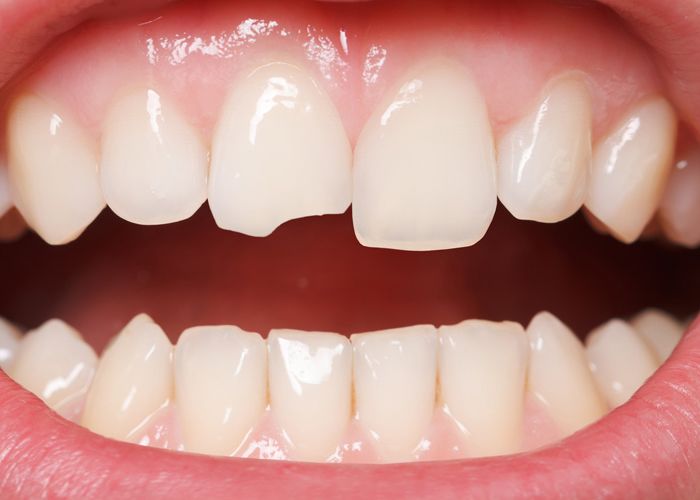Bonding for Chipped Teeth: A Conservative and Predictable Option
 When a tooth becomes chipped, it can detract from your appearance and make a beautiful smile seem jagged or rough. Even more importantly, a chip can weaken the overall structure of a tooth, making it more vulnerable to damage later on. Therefore, it is important to address the situation as soon as possible.
When a tooth becomes chipped, it can detract from your appearance and make a beautiful smile seem jagged or rough. Even more importantly, a chip can weaken the overall structure of a tooth, making it more vulnerable to damage later on. Therefore, it is important to address the situation as soon as possible.
At Artistic Expressions Dentistry in Philadelphia, PA, we offer a wide range of treatments in cosmetic dentistry, including dental bonding. The dental bonding procedure can conceal minor aesthetic flaws and strengthen the tooth.
Here, we discuss bonding for chipped teeth, and how this simple procedure can dramatically improve your smile.
What Is Dental Bonding?
Dental bonding involves the application of composite resin to the damaged tooth. This high-quality, tooth-colored material is the same substance used to fill a cavity.
Bonding can effectively change the shape, size, or color of a tooth. This versatile cosmetic treatment is one of the most popular procedures for repairing chipped teeth. In fact, it is often used as a more cost-effective and conservative alternative to porcelain veneers.
Repairing a Chipped Tooth with Dental Bonding
Having a chipped tooth repaired with bonding is a simple and straightforward procedure that can be completed in about an hour.
When you undergo this treatment at our practice, here is what you can expect:
- Shade selection: The composite resin can be color-matched to your smile. Your doctor will choose a shade that blends in with your natural teeth.
- Etching: A mild acidic solution will be applied to the tooth. This will roughen the surface and prepare it for bonding.
- Bonding: Once the tooth has been conditioned, the composite resin will be applied to the tooth.
- Shaping: Because the composite resin has a putty-like consistency, it can be shaped and molded to blend in with your smile.
- Curing: Once the material is shaped, it will be hardened with a curing light.
- Final adjustments: After curing the material, your doctor will smooth any rough edges and fine-tune your bite, making any necessary last-minute adjustments.
Aftercare Tips and Tricks
Once your dental bonding procedure is complete, there are a couple of things to keep in mind regarding aftercare. First, try to avoid staining agents such as tea, coffee, colas, berries, and other dark-colored foods and beverages for the first 48 hours, as composite resin is susceptible to discoloration for the first two days. Second, do not use your teeth as tools. For example, avoid biting your nails or chewing on pens and pencils. These habits can cause damage to the bonding material.
Benefits of Dental Bonding
Patients who choose dental bonding to repair cosmetic imperfections can enjoy a number of benefits. For example, bonding is:
- Cost-effective: Dental bonding is one of the most affordable treatments in dentistry.
- Comfortable: Unless the damage is close to the nerve, dental bonding does not even require local anesthesia.
- Long lasting: With proper care and maintenance, dental bonding can last up to ten years.
- Aesthetically pleasing: Because the composite resin can be color-matched to your natural teeth, your smile can look its best.
- Fast: Unlike custom restorations, dental bonding can be performed in a single office visit in under an hour.
Learn More about Dental Bonding
If you have chipped teeth, consider what dental bonding can do for you. To learn more about this cosmetic treatment option, contact us online or call us at (215) 340-1199.


